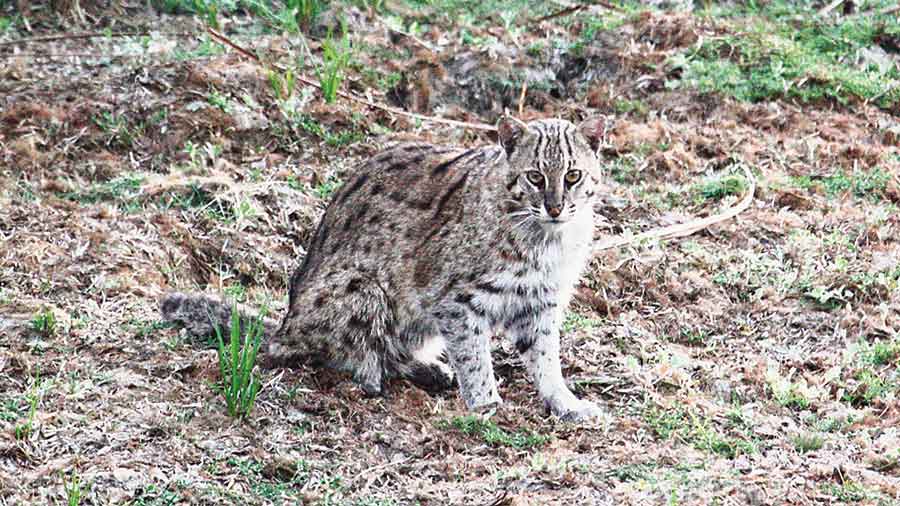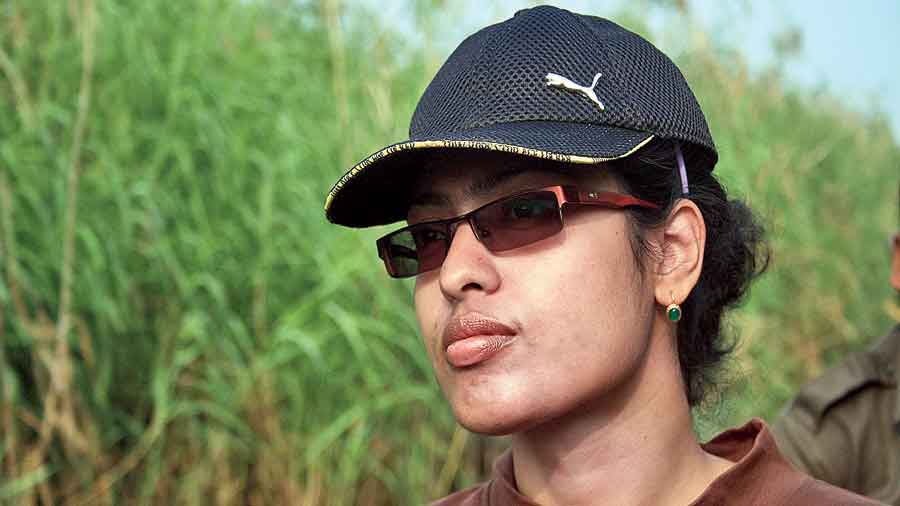A Kolkata girl, who is a crusader for an endangered animal and its habitat, has won a global award for conservation.
Tiasa Adhya, 35, the founder of The Fishing Cat Project, is one of the winners of the Future For Nature Award, 2022. The award is given annually to three nature conservations, up to 35 years old.
“Indian conservationist Tiasa Adhya is committed to safeguarding the fishing cat and its wetland habitat. With The Fishing Cat Project she connects locals, researchers and the government to create a strong network and help secure not only the future of the fishing cat but also for humans dependent on this ecosystem,” says the website of the Future For Nature Foundation, based in the Netherlands.
Gabriel Massocato, 34, a Brazilian biologist who “is going to great lengths” to create a safe environment for the giant armadillo, is another winner this year. British biologist Rebecca Cliffe, 31, “passionate about protecting sloths and their tropical forest habitat in Costa Rica”, is the third winner.
Each winner, selected out of over 250 candidates from all over the world, will receive an award and 50,000 euros (Rs 42 lakh approximately).

A fishing cat in Dudhwa, Uttar Pradesh.
Picture by Partha Dey“This is not a personal recognition. This is a global recognition for the fishing cat and its depleting habitat, the wetlands,” Adhya told The Telegraph over the phone from Chilika in Odisha, where she is stationed for developing a conservation project.
“Wetlands are also our lifelines — our food supermarkets, water reservoirs and shields against climate change. If the fishing cat is critically threatened today, it signifies that we are also standing on the brink and about to fall,” she said.
Fishing cat, baghrol in Bengali and Bengal’s state animal, is included in Schedule I of the Indian Wildlife (Protection) Act, 1972. Killing a fishing cat can invite a jail term of three to seven years and/or a fine up to Rs 30,000.
The nocturnal animal thrives in wetlands and feeds mostly on fish. Shrinking wetlands has dwindled their numbers and forced them to stray to human settlements and prey on fish farmed in ponds and livestock.
Since May 2020, at least a dozen fishing cats have been killed in different parts of Bengal.
The size — a full-grown fishing cat is twice the size of a house cat, weighing over 15kg — and blotches and stripes on its body make many people mistake it for a leopard or a tiger cub. The fear gets stronger if livestock is lifted and people try to kill the animal.
Adhya, a zoology graduate from Calcutta University and a researcher with The University of Trans-Disciplinary Health Sciences and Technology, Bangalore, has been working for the conservation of fishing cats for over a decade.
She has criss-crossed the wetlands of south Bengal to raise awareness among residents on the need to protect fishing cats.
The awards will be given at a ceremony in Arnhem, in the Netherlands, on May 13.
A statement from the FFN said Razan Al Mubarak, newly-elected president of the International Union for the Conservation of Nature (IUCN) and Frans Timmermans, vice president of the European Commission, will be the guests of honour.
In the past, the prize was presented by the likes of David Attenborough, Jane Goodall and the king of the Netherlands, Willem-Alexander.






